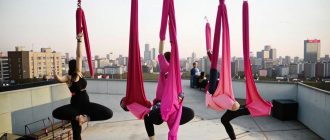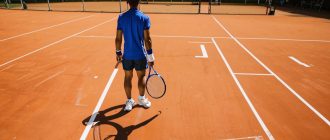There is no arguing that sport is very beneficial for your health, however, it does not mean that it will help you lose weight. Every day we are sold fitness club passes, sports nutrition, fitness gadgets for your convenience, but to achieve results you need to change not just one thing, but several aspects of your life.

How do we use energy?
The difference between the average person and a tribal hunter Herman Pontzer, an anthropologist at Hunter College in Yew York went traveling to Tanzania to research the Hadza tribe. This is one of the tribes where hunters and gatherers remained. The scientist expected to see in these people real calorie burners, because their life involves constant movement and a lot of physical activity.
The Hadza men spend most of their time catching prey and climbing trees in search of honey from wild bees. Pontzer was convinced he would prove the presumed cause of obesity: a worldwide lack of physical activity. But in studies in 2009 and 2010, scientists recorded the amount of energy expended in 13 men and 17 women between the ages of 18 and 75. They used the labeled atom method, the best-known way to measure the amount of carbon dioxide released when expending energy.

Most surprisingly, the energy expenditure of the Hadza was no greater than that of the average European. Of course, hunters and gatherers are much more active than civilized European man, but they burned the same number of calories per day as we do.
In fact, Pontzer’s research was imperfect, because only 30 people from the tribe were involved. However, the question arose: why do active and strong Handzas expend as many calories as the average person?
Energy is spent not only for movement, but also to support the vital activity of the body. Scientists knew this, but did not consider this fact significant in this study of global obesity. Pontzer speculated that this is how the Hadza save energy for other tasks or they rest after physical activity. “The Hadza expend the same amount of energy, but they don’t become obese like Westerners. They don’t overeat, and therefore they don’t get fat,” Herman reported. It follows that simple exercise is not enough to lose weight.
Sport keeps you healthy
We should always remember that physical activity is beneficial to our body and mind. The Cochrane Community reviewed studies showing that physical activity was ineffective for weight loss, but instead it helped improve health, lower blood pressure and blood triglyceride levels.
Such activity also reduces the risk of developing type 2 diabetes, heart attack, Alzheimer’s disease, dementia and stroke. If you have already lost weight, exercise combined with controlling your calorie intake will help keep it off.
Exercise burns only a fraction of your total energy expenditure. Exercise burns about 10-30% of your total energy expenditure. This also depends on the characteristics of the individual. True, there are exceptions in the form of professional athletes for whom exercise is work. The three main directions of energy expenditure:
- Basal (basic) metabolic rate – energy used to function the body even when it is at rest.
- Energy expended to digest food.
- Energy used for physical activity.
We can’t control our basal metabolic rate, and this is the most weighty energy expenditure. About 10% of energy expenditure is spent digesting food. The remaining 10-30% is spent on physical activity.

Physical activity can inhibit weight loss
Everyone experiences intense hunger after a workout. Sometimes this hunger is so intense that a person may absorb more calories than they just lost. A person also tends to overestimate the calories expended during exercise. One slice of pizza can ruin your results after an hour long workout.
Energy expenditure has a limit
There is a hypothesis that energy expenditure reaches a limit. Pontzer and colleagues provide evidence in a paper that was published in 2016 Current Biology.
For the study, the scientists recruited 332 adults from Ghana, South Africa, America, the Seychelles and Jamaica. After observing the participants for 8 days, the researchers collected data on physical activity and energy burned using accelerometers. They divided the subjects into three groups: sedentary, moderately active, and superactive. It is important to note that people were already leading this lifestyle at the time the study began.

The difference in energy consumption between the different groups was only 7-9%. Moderately active people burned an average of 200 kcal more each day than those who led a sedentary lifestyle. However, this fact did not translate into progress. “Adjusting for body volume and body structure, total energy expenditure was positively correlated with physical activity, but this correlation was markedly stronger at the lower end of the physical activity range,” writes Herman Pontzer.
The government is giving unscientific advice
Since 1980, the prevalence of overweight has doubled, and according to the World Health Organization, 13% of the world’s population is obese. Lack of physical activity and eating too much calorie-dense food have been cited as causes of this problem. However, this was disputed by the researchers, saying: “You can’t run away from a bad diet.”
The problem is that we eat more and more. Sports won’t actively help us lose weight as long as we are consuming huge amounts of calories. Sports are good for your health. But if you are trying to lose weight, the biggest problem is food.

Yet, how do you lose weight?
The characteristics and habits of adults who have lost 13 pounds and maintained their new weight for about a year or more have long been studied. Every year, more than 10,000 people tell us how they manage to keep the weight off. These people share common habits. For example, they weigh themselves once a week, limit their calorie intake, and exercise regularly. However, in this case, physical activity is used as a supplement to calorie counting. Any expert will tell you that the first thing to do is to limit your energy intake and switch to a healthy diet to lose weight. Certainly, dieting along with physical activity will ensure that you feel good. If you do decide to combine diet and sports, start by not overeating after a workout.






